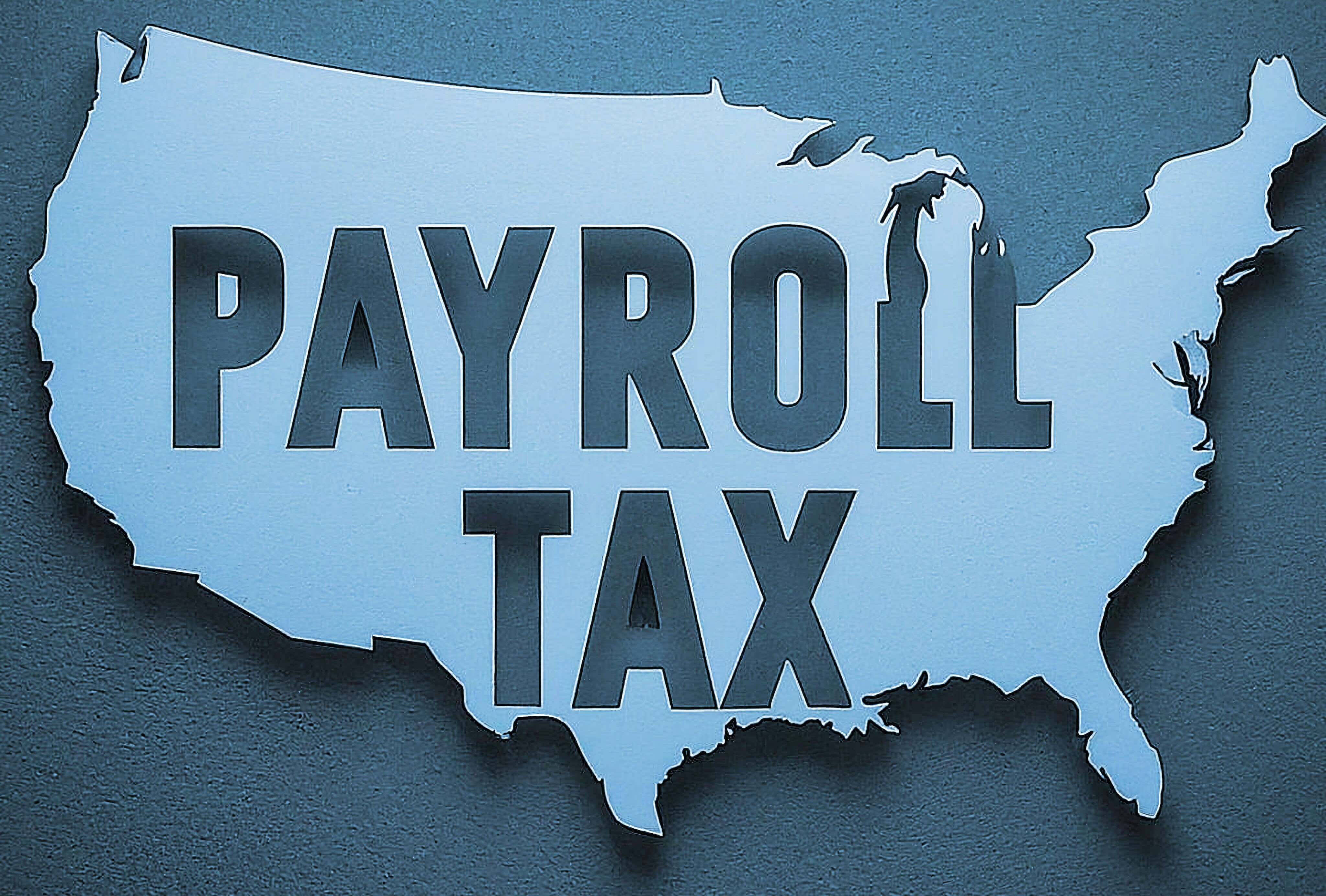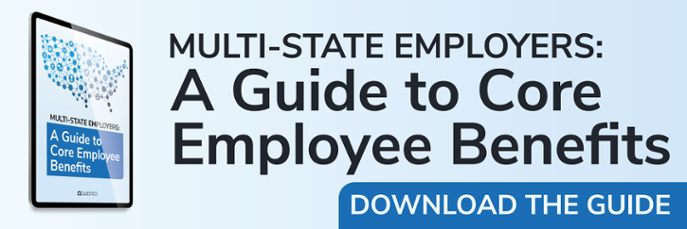Topic Compliance,
How Out-of-State Employees Affect Payroll Tax Withholding

July 10, 2024 | By Questco Companies

The labor situation has changed dramatically over the past 5 years, and while many workers have returned to office settings, the full picture is more complicated. Hybrid and remote work remain popular options for workers – and they allow companies certain flexibilities when choosing where to hire employees.
More and more employers see the benefits of remote workers because they have a wider pool of talent at their fingertips. However, hiring out-of-state workers pose payroll challenges. Remote workers complicate payroll tax withholding even further.
In this post, we’ll discuss how hiring out-of-state remote workers affects payroll tax withholding and offer some tips to help you keep up with these regulations and simplify your life.
Knowing the Requirements for Employer Withholding
Both state and federal laws require that employers withhold certain payroll taxes from an employee's compensation and send them to the government. The Federal government payroll taxes include:
- FICA - the mandated contribution amount helps pay for the U.S. Social Security program and Medicare, and
- FUTA - the federal unemployment tax that helps fund state unemployment benefit programs.
State wage withholding laws vary from state to state and include:
- State income taxes
- State unemployment taxes
- State Family and Medical Leave Act taxes
Keeping Up with the Current FICA Rate
FICA, the Federal Insurance Contributions Act, is familiar to most people as their Social Security taxes. Social Security taxes are deducted from an employee's gross pay and employees cannot opt out of the deduction except for certain specific exempt groups. The amount employers forward to the U.S. government includes the employee's portion and the employer's contribution. In 2024, the Social Security tax rate is 6.2% of gross wages, and the Medicare tax is 1.45% of gross wages – totaling 7.65%. The employer pays an amount equal to that deducted from the employee's gross wages. The Social Security taxable wage base is $168,000 in 2024, which is the maximum annual wage base for that year.
Self-employed individuals pay a higher amount under the Self-employed Contributions Act. 
Keeping Up with the Current FUTA Rate
FUTA is the employer tax required by the Federal Unemployment Tax Act. For 2024, the annual FUTA tax rate is 6.0% of the $7,000 wage base, however, employers can take a credit up to 5.4% for a net tax credit of 0.6%.
Keeping Up with the State Income Tax
Most U.S. states require employers to withhold state income tax from an employee's gross wages. Seven states do not have state income taxes: Alaska, Nevada, Florida, Tennessee, Texas, South Dakota, and Wyoming. Meanwhile, Washington state taxes only investment income and capital gains income tax for specific high earners, and New Hampshire doesn’t tax wages and is phasing out a tax on investment and interest income.
If an employer has facilities in more than one state, then state income tax withholding rules may result in withholding for more than one state from one employee's gross wages. Remote workers further complicate matters when they live in one state but perform work in another.
The general rule is that an employer withholds income tax for the state in which the employee performs the work, even if the employee is a non-resident. The income tax withholding complication arises when a state taxes all income of its residents, no matter where they earn their wages.
It is critical that HR staff stay familiar with various federal, state and local laws and regulations on income tax withholding. Determining an employee's resident status, in particular, is a key indicator.
Let’s Review a Few State-Specific Taxes
There are state-specific laws with respect to contributions based on an employee's wages. One example is mandated contributions to help pay for state unemployment benefits. In most cases, the state unemployment benefit contribution is an employer-only tax. However, there are some states that require employee deductions from gross pay. Those states are New Jersey, Alaska, and Pennsylvania.
Another example is Massachusetts's state law that requires employers to withhold contributions from an employee's income for the Paid Family and Medical Leave Act.
In a few states, employers must deduct employees' contributions from their gross wages for state temporary disability programs. Those states are: Hawaii, New Jersey, California, Rhode Island, and New York.
Understanding the Importance of a Withholding Location
The general rule is that employees are taxed in the state where they work, not where they live. For employees who live and work in more than one state, those states may require filing income taxes in both states. This practice results in double-taxation. Some states avoid double-taxation by using tax credits.
Special considerations apply to determine whether the tax credit rules apply to a particular employee's situation:
- Nexus,
- State-specific rules, and
- Reciprocity agreements.
Nexus is the process of determining whether an employer must withhold income taxes for a particular state. Each state determines its own rules regarding Nexus. The rules generally include determining the employee's compensation for the number of days the employee worked in the state compared to the number of days worked out of the state.
Some states have state-specific withholding rules in these matters. For example, Massachusetts' rules on earnings in multiple states require employers to withhold income tax from a resident employee for all work in and out of state. For a non-resident employee, employers must withhold income tax only for work performed in Massachusetts. On the other hand, Texas does not impose such legal requirements on employers with dual-state employees.
Some states enjoy reciprocity agreements with other states in dual-state employee situations. A reciprocity agreement is, at its heart, an agreement between two states that one of the states will not withhold income tax from the other state's employees' gross pay. Washington DC and Virginia have such a reciprocity agreement. Maryland has reciprocity agreements with Pennsylvania, Washington DC, Virginia, and West Virginia. Arizona and California also have a reciprocal agreement. It is important to keep track of the 16 states (plus Washington DC) that have reciprocity agreements, as those agreements may terminate, or new ones may be added to the list.
Stay Compliant with an HR Partner
Employers must understand and follow federal and state laws as well as regulations at the local level. That is because, even two remote workers who live in the same state may have specific local laws that apply to the area in which they live. The withholding rules are even more complicated if a remote employee does business in multiple states.
Employers that do not have a payroll specialist on staff should consider outsourcing payroll processing to experts in multi-state withholding. There are two options here. Dedicated payroll processors compute payroll taxes, but the employer remains responsible for filing the paperwork on time and for the accuracy of the filings. On the other hand, a comprehensive HR outsourcing solution becomes the employer's HR partner. The comprehensive solution not only calculates and remits taxes on the employer's behalf, but it also remains partially liable for any payroll mistakes.
Questco has the expertise to help employers navigate these complexities and ensure they remain compliant – wherever their employees work. Reach out today to learn more.






